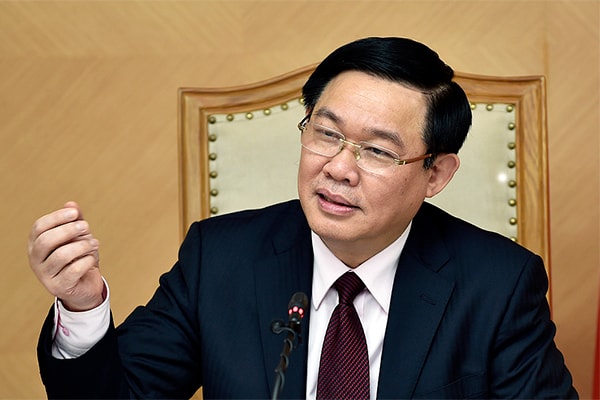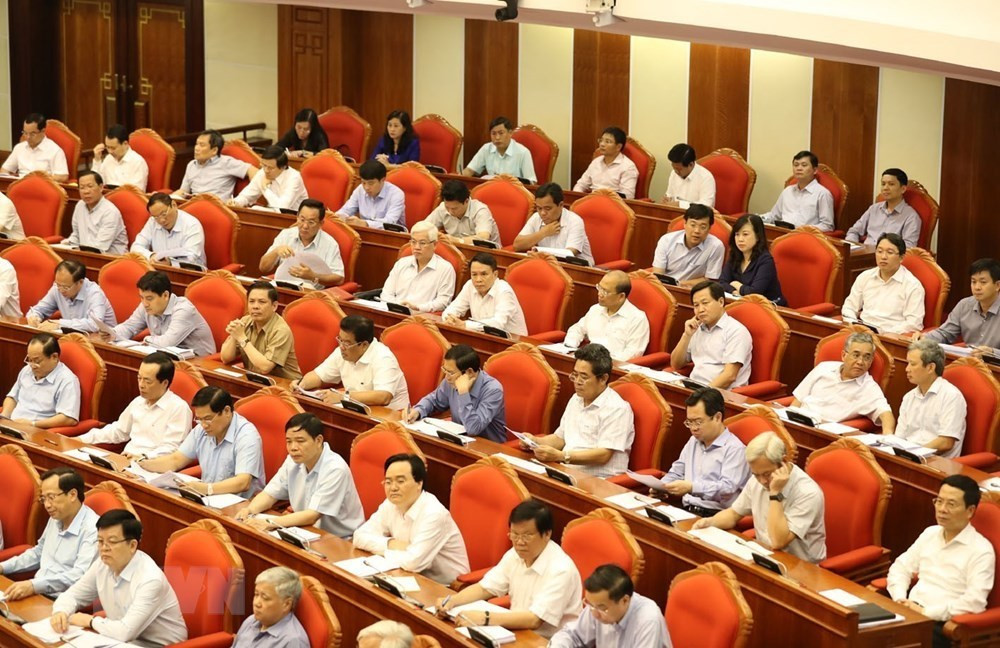Deputy Prime Minister: Salaries will ensure the lives of officials and civil servants
Deputy Prime Minister Vuong Dinh Hue hopes that soon, salary will truly be the main income, ensuring the lives of officials and civil servants.
On the occasion of the New Year, Deputy Prime Minister Vuong Dinh Hue - the person assigned by the Central Committee to develop a project and implement tasks on salary reform (Resolution 27, 12th Central Committee, 7th term) had a discussion on the issue of salary.
 |
| Deputy Prime Minister Vuong Dinh Hue. Photo: Nhat Bac |
Salary reform is only successful when the apparatus is streamlined.
Resolution 27 sets the goal: "From 2021, apply a new, unified salary regime throughout the entire political system", "Salary must truly be the main source of income for civil servants and public employees"...
There are still 2 years left to achieve the set goal. According to the Deputy Prime Minister, with the current limited budget and low salary base, is it feasible?
This salary reform is completely feasible.
Before Resolution 27, the story of salary reform was mentioned in many Central Conferences but could not be passed and the salary policy could not be fundamentally reformed because of the problem of payroll and funding sources.
However, this time is different, we have Resolutions 18 and 19 of the 12th Central Committee, Session 6, on streamlining the apparatus and reducing staff not only in the state administrative sector but also promoting the rearrangement of public service units.
This is a breakthrough solution, creating the prerequisite for salary reform. Salary reform can only be successful if we successfully implement a streamlined, effective and efficient apparatus.
In the near future, we will amend the Labor Code related to retirement age or implement policies related to wages. There are clear policies and specific solutions stated in Resolution No. 27 on reforming wage policy and Resolution on reforming social insurance policy.
Could the Deputy Prime Minister share more clearly about the plan for the Government to put Resolution 27 into practice?
There are some very important things to do right away.
The firstIf you want to pay salary based on job position, title, or position, you need to develop and approve a job position plan. The Resolution of the Central Committee also emphasizes the principle that whatever is approved must ensure streamlining of the payroll.
Previously, there was a situation where some units approved job position projects, but after approval, the total number of employees in the agency or unit was higher than the current position, which was not on target.
 |
| Deputies discussed salary reform at the 7th Central Conference on May 9, 2018. Photo: VNA |
MondayIt is necessary to strengthen the restructuring of the apparatus according to Resolution 18 and 19, streamlining the payroll. Streamlining the payroll by an average of 2.5% of the total payroll each year was very difficult to do in the past, but in recent years we have done it very drastically.
From assigning state budget expenditure targets based on staffing targets to create pressure for ministries, branches and localities to seriously implement staff streamlining. In addition, ministries, branches and localities continue to reorganize their apparatus very strongly.
In addition, localities have been arranging residential groups, villages, hamlets and will soon merge communes, wards and districts that do not meet the standards in terms of area and population according to the Central regulations, which will help streamline the apparatus and reduce staff significantly.
Similarly, public service units must also be reorganized. Newly recruited officials will not be under a lifetime contract system but will be under a labor contract system. The civil servant system will not be maintained in public service units, except in service units serving Party agencies and State management agencies.
This way we will save a lot of resources for salary reform.
Third is to prepare resources for salary reform. From now on, every year, about 50% of the estimated revenue increase and 70% of the actual revenue increase of the local budget and about 40% of the central budget revenue increase will be spent on salary reform.
Combined with the savings from restructuring the apparatus and streamlining the payroll, we will have enough resources by 2021 to adjust salaries according to the salary policy reform plan.
Salary must really be the main income
What has the Government done in the three proposed contents, Deputy Prime Minister?
Currently, the reorganization of the apparatus and streamlining of staff in ministries, branches and localities are being vigorously carried out and have had some initial results. With this progress, it is very positive, we have reorganized and streamlined very strongly.
When reforming salary policy, according to the report of Hanoi City, in 2017, the initial arrangement of public service units and the promotion of internal arrangement within departments and branches reduced regular expenditure by 5.4% - a very large amount, not to mention the revenue from land auctions collected in the budget from the rearrangement of public service units.
According to the report of the Central Organizing Committee, after 1 year of implementing Resolution No. 18 and No. 19, the state budget has saved 11,000 billion VND from streamlining the apparatus and arranging and innovating the operations of public service units.
In addition, public service units that meet the conditions will be transferred to equitization (except for hospitals and schools). When a public service unit switches to operating under the enterprise model, it means reducing 100% of the number of employees there who receive salaries from the budget. Also through the survey report, in reality, 90% of local public service units have a staff of less than 30 people, in which many places only have 10 people but still have to have full "nails, fields, money, and seals". That means having a staff, land, separate budget, then having a seal, having a head, deputy head, secretary, driver, security guard..., having everything. So it is necessary to rearrange, drastically reduce the number of units, and streamline the staff.
It should be emphasized that reforming and streamlining the payroll means reducing the number of people receiving state salaries, not reducing the number of workers. Public service units that have become financially autonomous and have switched to operating as joint stock companies also create conditions to attract more workers from outside the society.
In the Government's action program to implement Resolution No. 27, it is stipulated that in 2019, the construction and approval of job positions must be completed, and at the same time, the construction of salary scale systems and plans to convert old salaries to new salaries must be implemented to be able to reform salary policies from 2021.
What does the Deputy Prime Minister expect when applying the new salary policy in 2021?
I expect that salary must really be the main source of income to ensure the life of workers and their families.
In the public sector, the State pays salaries according to job position, title and leadership position, in accordance with State resources and public career revenue and compatible with salaries in the labor market.
From 2021, the lowest salary of civil servants and public employees must be equal to the average lowest salary of the business sector, moving towards being higher than that of the business sector, according to international experience and practice.
In addition, the unreasonable issue of retirement age will be resolved. Starting from 2021, the retirement age will be adjusted according to the target, expected to be 62 years old for men and 60 years old for women, narrowing the gender gap in retirement age regulations...


